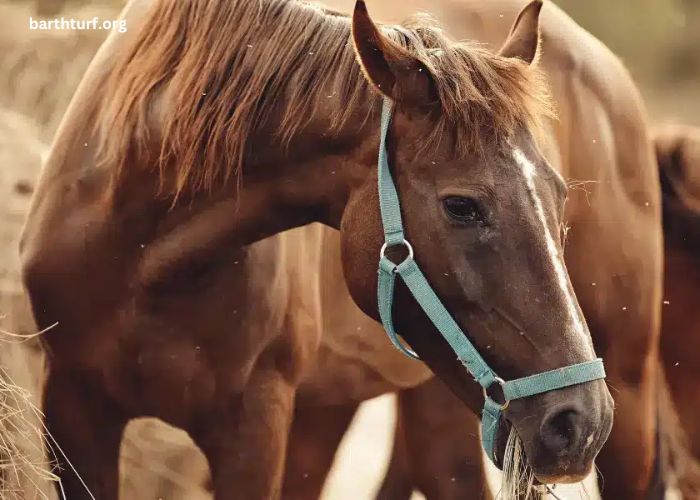In certain aspects of horse management, particularly in the fields of breeding and racing, effective strategies for Elimination Des Chevaux are crucial. This process involves both the welfare of the animals and ensuring that the challenges that arise in managing large populations of horses are handled with care and precision. Through careful consideration and planning, Elimination Des Chevaux plays a key role in managing the overall health and performance of horses within these industries.
The practice of Elimination Des Chevaux is essential not only for animal welfare but also for the sustainable management of resources. In sectors such as competitive racing and breeding, horses can sometimes develop health problems or may not meet performance expectations. Therefore, Elimination Des Chevaux provides solutions that aim to enhance both the animal’s quality of life and the efficiency of the overall operation. This is why proper management of the elimination process is essential for businesses involved with horses.
What Is Elimination Des Chevaux?
Elimination Des Chevaux is a term that refers to the strategic management and removal of horses from specific environments due to factors such as poor health, low performance, or overpopulation. This process is particularly relevant in industries such as competitive racing, breeding farms, and animal sanctuaries, where managing large populations of horses can pose logistical challenges. The term itself is often associated with the need for humane practices in the decision-making process surrounding the elimination of horses from a system or process.
This practice ensures that the health and well-being of both the horses and the operations involved are maintained. In some cases, Elimination Des Chevaux may involve rehoming, providing medical care, or even making the difficult decision to euthanize horses that are no longer fit for specific purposes. The goal is always to prioritize the welfare of the animals while also ensuring that the broader operational objectives are met. It’s a practice deeply rooted in ethical considerations, and its importance in the horse industry cannot be overstated.
Why Is Elimination Des Chevaux Necessary in Horse Racing?
In the world of horse racing, Elimination Des Chevaux serves as a critical measure for maintaining the competitive integrity and health of the animals involved. In some cases, horses may not meet the performance standards necessary for racing, or they may develop injuries that prevent them from continuing in their careers. The process of Elimination Des Chevaux ensures that these horses are either rehomed to other roles or humanely put to rest, depending on their health and circumstances.
The need for Elimination Des Chevaux within horse racing is not only about managing animal health but also about the overall efficiency of racing operations. Horses that are no longer able to race at their highest potential can take up valuable resources, and their removal from racing circuits allows resources to be allocated to horses that have better chances of success. By employing a responsible elimination process, the integrity of the industry is maintained, and the horses receive the necessary care and attention they require.
How Does Elimination Des Chevaux Impact Horse Breeding?
In the horse breeding industry, Elimination Des Chevaux is often required when certain horses are deemed unsuitable for further breeding due to genetic factors, health issues, or other concerns. This process helps ensure that only the most viable horses are selected for breeding purposes, which contributes to the overall quality of the breed. By carefully selecting breeding candidates and removing horses that are no longer able to contribute, breeders can maintain high standards in their breeding programs.
Elimination Des Chevaux in the context of breeding not only protects the genetic integrity of a breed but also addresses the issue of overpopulation. By eliminating horses that are unsuitable for breeding, the industry can focus on improving genetic lines and ensuring that the horses being bred have the best possible health and temperament. This process is critical for managing breeding farms effectively, making sure that only the strongest and most healthy horses are allowed to reproduce.
What Ethical Considerations Surround Elimination Des Chevaux?
The practice of Elimination Des Chevaux is fraught with ethical considerations, as it involves making tough decisions about the welfare of the animals. It is essential that the process be conducted with compassion and respect for the life of the horse, and that the decisions made are in the best interest of both the animal and the industry. Humane methods of elimination, such as rehoming horses when possible or ensuring that euthanasia is done in a painless and dignified manner, are critical to the ethical handling of these situations.
Additionally, the transparency of the elimination process plays a key role in maintaining ethical standards. The public perception of Elimination Des Chevaux can sometimes be negative, especially in industries like racing or breeding, where the decision to eliminate a horse may seem harsh. However, when done properly, Elimination Des Chevaux ensures that horses that can no longer contribute are treated with the respect they deserve. Ethical practices must be adhered to in order to avoid unnecessary suffering and to uphold the values of kindness and care toward the horses.
How Can Elimination Des Chevaux Be Managed Effectively?
Effective management of Elimination Des Chevaux requires a comprehensive approach that involves both prevention and intervention strategies. Prevention involves careful breeding practices to avoid producing horses that may not meet performance standards or that could be prone to certain health issues. Intervention, on the other hand, involves the timely identification of horses that may need to be eliminated due to age, injury, or other factors.
Elimination Des Chevaux can be managed effectively by working with veterinarians, trainers, and other professionals who can help assess the health and performance potential of the horses. This collaborative approach ensures that decisions are made based on the best interests of the horses and the operation. Additionally, maintaining clear and transparent records of each horse’s health history and performance can help in making informed decisions about their future. By adhering to these guidelines, the elimination process becomes more streamlined and humane, minimizing any negative impact on the horses involved.
Conclusion
In conclusion, Elimination Des Chevaux is a necessary but complex practice within industries that rely on horses, such as racing, breeding, and other equestrian operations. The key to managing this process effectively lies in balancing ethical considerations with operational needs.
When handled with compassion and responsibility, Elimination Des Chevaux ensures that horses are treated with the utmost respect, whether they are retired, rehomed, or humanely put to rest. This careful management not only helps maintain the integrity of the industry but also prioritizes the well-being of the animals, ensuring a humane and effective approach to horse management.



